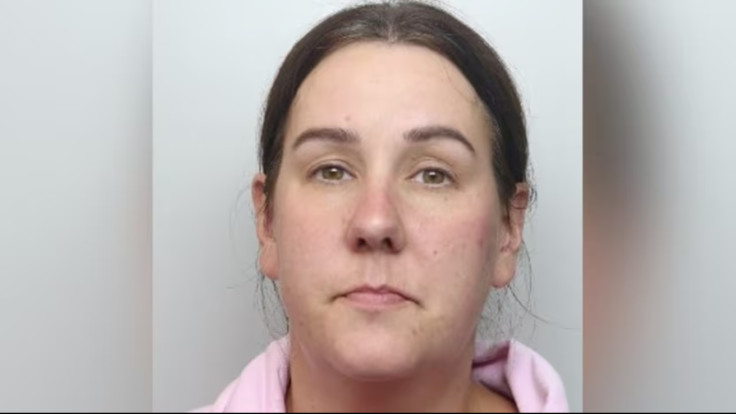The Lucy Connolly Case: Her Fight for a Name Sparked Fears of a Silenced Britain and Free Speech Under Attack
From mother to political symbol, Lucy Connolly's prison sentence over a tweet ignites controversy on Britain's free speech laws.

Lucy Connolly's release from prison has reignited one of the most heated debates in Britain today: free speech versus hate speech.
Once an unknown childminder from Northampton, the 42-year-old has become a polarising figure, seen by some as a reckless offender spreading hate, and by others as a political prisoner in an increasingly authoritarian Britain.
Her legal fight to clear her name has in turn fuelled wider fears that the UK is sliding into a silenced nation where dissent is punished.
Who Is Lucy Connolly?
Before her conviction, Connolly lived a quiet life as a mother of two. That changed in July 2023, when she posted a furious message on X (formerly Twitter) after the Southport murders.
In what she later described as a 'red mist', she called for 'mass deportations' and suggested hotels housing migrants should be burned down.
Lucy Connolly is one very brave woman.
— Rupert Lowe MP (@RupertLowe10) August 22, 2025
Although she deleted the post, screenshots circulated online. Just over a week later, she was arrested, denied bail, and sentenced to 31 months for stirring up racial hatred.
'I accepted it wasn't my finest moment,' Connolly told The Telegraph. 'But I did not advocate violence. My words were massively twisted and used against me.'
Connolly's Fight To Clear Her Name
Connolly rejects being labelled a 'far-right thug'. She insists prosecutors misrepresented her comments, even claiming she admitted to disliking immigrants during police interviews, something she denies.
Now free, she is seeking legal advice and vows to hold authorities to account.
'There's people that have done far worse, and no one would know their names. Everyone knows mine,' she said. For Connolly, defending her reputation has become as important as her freedom.
🚨BREAKING: Lucy Connolly set to sue police as she prepares to meet with the Trump administration over “free speech crackdown”.
— The British Patriot (@TheBritLad) August 22, 2025
Mega FAFO incoming. pic.twitter.com/R2g0NfmXX2
Why Free Speech Is At The Centre Of The Debate
Connolly's case has quickly grown beyond one woman's conviction. Appearing on broadcaster Dan Wootton's YouTube show, she revealed she had been invited to meet representatives of Donald Trump's administration, who she says are 'keen to speak' with her as advocates for free speech.
This interest coincides with mounting international criticism of Britain's speech laws. At the Munich Security Conference, US senator JD Vance warned: 'In Britain, and across Europe, free speech, I fear, is in retreat.'
For Trump's allies, Lucy Connolly's imprisonment has become a symbol of that retreat.
If I were Lucy Connolly, I’d want to spend every waking hour with my daughter rather than doing the rounds of the right-wing media talking about revenge. But then again, if I were Lucy Connolly, I wouldn’t be a racist bigot to start with.
— Liesl (@Liesl_RW) August 22, 2025
A Divisive Symbol Of A Silenced Britain
Her case has split public opinion.
Critics argue she is a reckless offender whose words risk inciting violence. Supporters counter that she is a mother punished disproportionately and turned into what she calls Sir Keir Starmer's 'political prisoner'.
For Connolly, the battle is personal as well as political. She wants to rebuild her life with her family but also insists her case shows the unfairness of Britain's hate speech laws.
Just watched the #LucyConnolly interview.
— Linda (Mags) (@magsloveslife2) August 22, 2025
She is about to become #KeirStarmer’s worst nightmare and it will be beautiful to watch.
She’s got the measure of @narindertweets and @Femi_Sorry too 👏🏻😉
Make no mistake. #LucyConnolly was a political prisoner. pic.twitter.com/qqPUTiN6An
The Bigger Question
Whatever one's view, the Lucy Connolly case has raised urgent questions at the heart of Britain's free speech debate: where does free expression end and hate speech begin?
And more urgently, has the UK entered an era where saying the wrong thing could cost not only your reputation, but also your freedom?
© Copyright IBTimes 2025. All rights reserved.





















